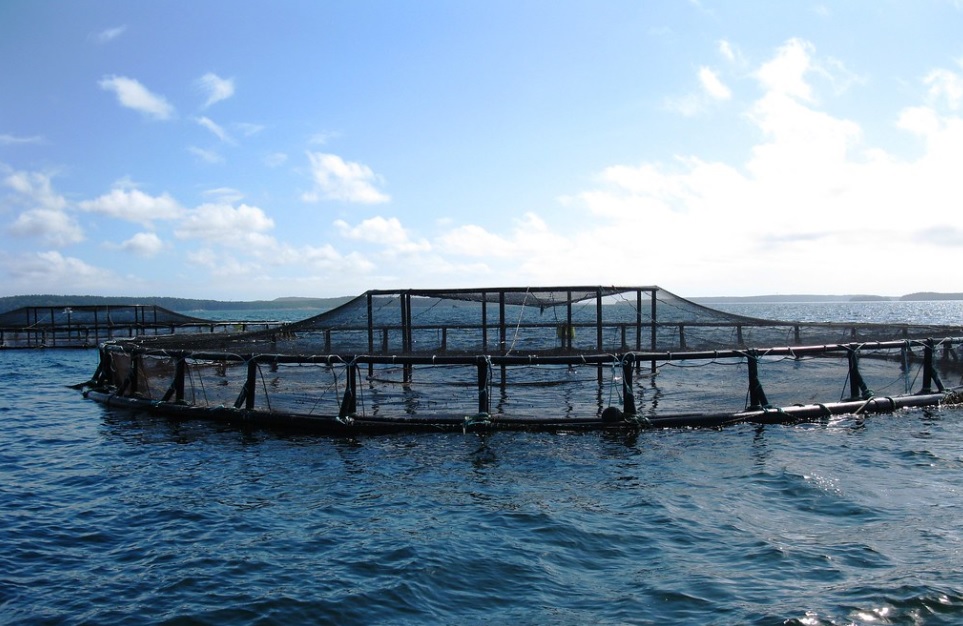Zimbabwe Set to Transform Fisheries Sector with Landmark Aquaculture Bill
The Fisheries and Aquaculture Bill was made possible through FISH4ACP—an initiative of the Organization of African, Caribbean and Pacific States (OACPS).

- Country:
- Zimbabwe
Zimbabwe is on the brink of a transformative shift in its fisheries and aquaculture sector with the introduction of its first-ever Fisheries and Aquaculture Bill. Developed under the auspices of the global aquatic value chain development programme, FISH4ACP, this landmark legislation is designed to modernize and regulate the industry, paving the way for sustainable growth, economic development, and food security.
A Collaborative Milestone Backed by Global Partners
The Fisheries and Aquaculture Bill was made possible through FISH4ACP—an initiative of the Organization of African, Caribbean and Pacific States (OACPS). The programme is implemented by the Food and Agriculture Organization of the United Nations (FAO) and funded by the European Union (EU) alongside the German Federal Ministry for Economic Cooperation and Development (BMZ).
Patrice Talla, FAO Subregional Coordinator for Southern Africa and Representative to Zimbabwe, described the bill as a “critical turning point” for the sector, noting the inclusive and participatory approach that guided its development. “The bill provides a comprehensive and cohesive legislative framework. Spearheaded by FAO through its FISH4ACP programme, the development of the bill has been a collaborative effort, involving extensive multi-stakeholder consultations across the country,” he said.
Inclusive Development Through Stakeholder Consultations
A hallmark of the bill’s drafting process has been its commitment to inclusivity. Women and youth—often underrepresented in policy development—played an integral role in nationwide consultations. Feedback from these engagements formed the basis of a zero-draft version of the bill, developed in close coordination with Zimbabwe’s Attorney General’s office and FAO legal experts.
Policy Rooted in Research and Analysis
The foundation for the legislation was laid in 2022 when FISH4ACP conducted a comprehensive value chain analysis of Zimbabwe’s aquaculture sector. The study identified the need for a coherent legal and policy framework as a prerequisite for unlocking the sector’s full potential.
Milton Makumbe, Director of the Fisheries and Aquaculture Resources Department in the Ministry of Lands, Agriculture, Fisheries, Water and Rural Development, emphasized the strategic role of the bill. “This bill is a game-changer, streamlining regulations, promoting sustainable practices, and driving growth in the industry. I am confident that we can unlock new opportunities for economic development, food security, and job creation,” he stated.
EU and FAO: Partners in Progress
The European Union, a principal financier of FISH4ACP, lauded Zimbabwe’s progress. EU Ambassador to Zimbabwe, Jobst von Kirchmann, highlighted the tangible impact of the EU’s support: “From the development of robust legislation to the rollout of breeding centres and fingerling hubs, we are witnessing foundational progress in Zimbabwe’s aquaculture sector. These milestones lay the groundwork for a sustainable fish value chain that can unlock millions in added value and create decent jobs—especially for women and youth.”
Ambitious Targets and a Vision for Growth
Zimbabwe’s vision is bold. With the new bill in place, the country aims to produce 14,000 tonnes of farmed tilapia annually and generate USD 22 million in aquaculture value by 2032. These targets contribute to Zimbabwe’s broader ambition of developing a USD 1 billion fish economy.
The bill is expected to boost investor confidence and improve the ease of doing business in the sector, which currently boasts USD 22 million in added value, as identified by the FISH4ACP value chain analysis.
Infrastructure to Support a Thriving Sector
FAO has supported the Zimbabwean government with technical expertise to establish and rehabilitate three breeding centers and two fingerling distribution hubs. These facilities are vital for promoting good genetic practices and enhancing aquaculture productivity. They also represent an essential part of the infrastructure needed to meet the country’s ambitious production targets.
Voices from the Ground: A Farmer’s Perspective
Loraine Motsi, a fish farmer who participated in a recent stakeholder workshop, expressed optimism about the bill’s potential. “This bill can safeguard the future of Zimbabwe’s fish farmers,” she said. “It preserves the integrity of the supply chain from fingerlings to feed, enabling farmers to produce high-quality fish and build a thriving aquaculture industry that benefits our entire nation.”
A Blueprint for Inclusive and Sustainable Growth
FISH4ACP is a five-year initiative (2020–2025) that supports 12 fisheries and aquaculture value chains across OACPS member countries. Zimbabwe’s Nile tilapia aquaculture value chain was among 12 projects selected from over 70 global proposals for FISH4ACP support. The programme focuses on boosting productivity and competitiveness while ensuring environmental sustainability and social inclusiveness, with a particular emphasis on empowering small and medium-sized enterprises, women, and youth.
With the bill now ready to be presented to parliament, Zimbabwe stands at the threshold of a new era in aquaculture—one that promises not only economic resilience and food security but also inclusive development driven by informed policy and global cooperation.










